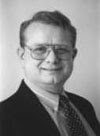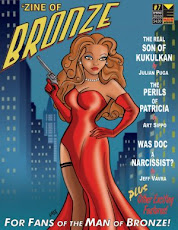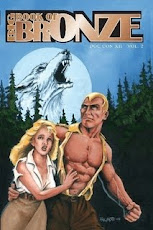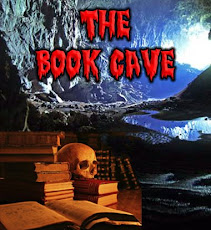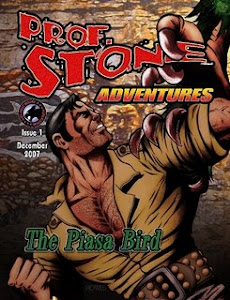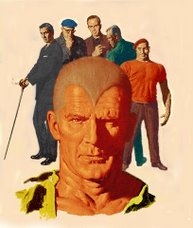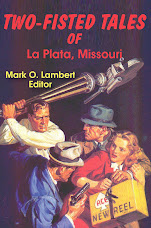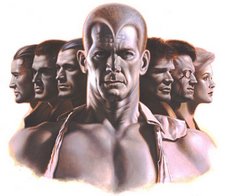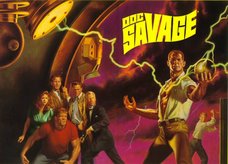
The great Grandmaster of science fiction, Philip José Farmer, was the consummate bibliophile. He was well read in classical English prose as well as the more popular literary works of modern times. His love for the broad sweep of English literature led him to create the Wold Newton Family, named after a place in England where a meteor had come to ground on 13 December 1795. Phil united all of his favorite literary characters and genres in one enormous scheme that spanned the entire length of human history even into the future.
Mr. Farmer first proposed his grand vision in his biography of the man whose life was fictionalized by Edgar Rice Burroughs in the Tarzan series. This book Tarzan, Alive! (1972) launched the Wold Newton Family. Farmer traced the family history of Tarzan, Lord Greystoke, through several centuries of English literary and historical characters. He continued this project in his next biographical work Doc Savage: An Apocalyptic Life (1973). Farmer had previously postulated a family link between Tarzan and Doc Savage in his controversial novel A Feast Unknown (1969). In his later biographical works, he documented the research to make the case for that relationship. Thus he was able to link Elizabeth Bennett from Pride and Prejudice to Sherlock Holmes, Major Barbara, Fu Manchu, The Time Traveler, and Robert Harrison Blake from the Cthulhu mythos.
Phil Farmer was always a maverick and an innovator. It is no surprise that he decided in the mid 1970s to write his own version of the romantic English novel but with a modern erotic twist. In this he anticipated by over a decade the trend in Harlequin-style romance novels which have become even more graphic than he had imagined 30 years ago. The story would wed together the settings and characters from his favorite works of literature and the extended Wold Newton Family he had created to unite them. Thus was born the original outline for the novel The Evil in Pemberley House.
As often happens to men of literary genius, Phil Farmer's fertile imagination birthed many plot lines, some of which would never be brought to fruition. There are so many ideas yet there is so little time. As he completed work on his Riverworld series, started his Dayworld series, and finished the one work of which he was most proud (The Unreasoning Mask), The Evil in Pemberley House receded into the background and became an idea he had discussed with a few friends and colleagues decades earlier. But the written outline remained hidden in his file cabinet along with other tantalizing projects that never were developed. It was very much like that battered dispatch box of Dr. John Watson hidden in a bank vault on Charing Cross Road containing notes on the unwritten cases of Sherlock Holmes.
Eventually, the outline of Pemberley House came to the attention of Win Scott Eckert who has published widely on the web and in print on the Wold Newton Universe. He has helped to make the Wold Newton Universe an on-going world-wide phenomenon. Win realized the importance of this novel to the Wold Newton legacy especially since it came from Philip José Farmer himself who had conceived of Pemberley House at the height of his creative effort in creating the Wold Newton Universe. With permission from Phil and his wife Bette, Win collaborated with Phil in fleshing out the story and preparing it for publication. The final editing was completed in 2008 and Phil Farmer lived long enough to learn that his Pemberley House story was to be published by Subterranean Press in 2009. The master story teller Phil Farmer passed away on 25 February 2009 at the age of 91, but his legacy lives on.
 The story of The Evil in Pemberley House is set in 1973. The heroine, Patricia Wildman, is the daughter of the great adventurer, Dr. James Clark "Doc" Wildman who had recently died along with her mother in a plane crash somewhere in the arctic. Their bodies were never found. After her parents' death, Patricia had married one of the physicians who had worked in the clinic with her father, but he dies tragically shortly after they are married and she is left alone and with no close family ties.
The story of The Evil in Pemberley House is set in 1973. The heroine, Patricia Wildman, is the daughter of the great adventurer, Dr. James Clark "Doc" Wildman who had recently died along with her mother in a plane crash somewhere in the arctic. Their bodies were never found. After her parents' death, Patricia had married one of the physicians who had worked in the clinic with her father, but he dies tragically shortly after they are married and she is left alone and with no close family ties.Patricia is a tall voluptuous woman with the same golden-flecked eyes, bronzed skin, and red-bronze hair as her father. She had been educated like her father from childhood to be a physical and mental marvel, though not with the same intensity with which her father had been trained. Even though she is a virtual superwoman, Pat is still a lonely young lady who is haunted by the loss of her father. He had been more than a mere parent to her. He was such a paragon of human perfection that he seemed more like a god. His memory still intrudes on her when she is with other men. None of these other men -- even her late husband -- could match up to her father in anything, and she burns with incestuous desire for him even though she knows he is dead.
As she struggles with her loneliness and confusion, she learns that through her father's lineage, she is next in line to inherit Pemberley House, the sprawling mansion in Derbyshire which is featured in Jane Austen's novel Pride and Prejudice. It is also possible that she could receive the title of Baroness of Lambton. Pat decides to go to England and to see Pemberley House for herself and meet the 103 year old Duchess of Pemberley who currently owns the mansion. Based on what she will find, Pat will decide whether or not to accept the inheritance. She hopes that this adventure will take her mind off her recent personal tragedies.
But things are never that simple in a Phil Farmer story!
Pat meets an odd cast of characters: some grotesque, some nasty, some hostile, and virtually all of them lascivious. On the trip from the airport to the mansion, Pat must prove her mettle when she is brutally assaulted. But she shows that she is indeed her Father's daughter and routs her attackers. Pat also discovers that Pemberley House comes with its own ghost and family curse. Early on, Pat finds that many of the occupants of the mansion don't want her there and seemingly will do anything to discourage her from becoming the heir.

The book is filled with conflicts of various kinds including some incidents that would definitely have made the prim Ms. Austen blush. This is after all a Phil Farmer story set in the sexually turbulent 1970s and the erotic content is an integral part of the story. But the sexual content is very tame compared to similar modern stories and is not merely gratuitous.
The colorful cast of characters includes the dowager Duchess and her very personal physician multiple servants with mysterious pasts and those hangers on who gravitate into the lives of wealthy people when there are no relatives to prevent it. There are also the usual bedroom-farce antics and cases of mistaken identity that abound in romantic novels.
Pat is faced with several mysteries that need to be solved. The motives and identities of several characters need to be discovered. She has to understand why odd events in the house keep occurring. And most importantly, she actually confronts the apparent ghostly apparition and needs to determine whether it is truly supernatural or just another scheme to scare her away from the house and her inheritance.
During the main body of the story we are introduced to the history of Pat's family which included her grandfather who was the illegitimate love child of the Duchess's husband and who committed a great crime which sent him into exile to America. There was also a lost scion of the family -- actually the duchess's nephew -- who had been marooned in Africa as a child and who eventually returned to assume the identity of the Duchess's own son. There are also a host of other flamboyant characters that will be quite familiar to fans of Phil Farmer's biographical works. Wold Newton fans will be treated to numerous clarifications and extensions of the Wold Newton Family. Included in the final production form of the novel will be an updated Wold Newton family tree so that fans may keep track.

The denouement of the story is an extended action sequence in which Pat Wildman confronts the real villains and triumphs over them. She is depicted as fighting virtually nude in clothing that has been shredded during the action. It very much reminded me of the iconic image of Doc Savage and his torn shirt made famous by the art work of James Bama from the Bantam reprints of the Super Sagas. This is where the solutions to all the mysteries are revealed. I must comment that the flow of the battle sequences went very smoothly which clearly was the work of Mr. Eckert. Similar sequences by Phil Farmer in other works were often choppy and chaotic. Nevertheless, the content of these sequences was pure Farmer with editorial polish.

Overall, this was a fun book to read. It had action, adventure, mystery, sex, violence, and a large dose of Wold Newton connections. I think the collaboration between Eckert and Farmer was excellent. They made their own contributions to the plot and the final editing gave a satisfying flow to the narrative. The story also left open the possibility of a sequel or two. Or more. If there are any other outlines in Phil Farmer's filing cabinet, I for one would like to see Win Eckert be permitted to flesh them out into full fledged novels.
The Evil in Pemberley House stands on its own as an entertaining story, but in my opinion, one can better appreciate it if one has read the genealogical portions of Tarzan, Alive! and Doc Savage: An Apocalyptic Life. This is not strictly necessary but the reader will be rewarded with a better grasp of the underlying storyline. I think it is also highly recommended that one read Arthur Conan Doyle's Sherlock Holmes story The Adventure of the Priory School which is also quite important to the background of the story
I am so pleased that this classic Philip José Farmer story was rescued from oblivion by the collaboration of Win Eckert and Phil Farmer. Wold Newton fanatics such as myself will find a gold mine of new canonical material from the master himself and bold writers will be able to use this to extend the Farmerian legacy to future generations.
The Evil in Pemberley House by Philip José Farmer and Win Scott Eckert will be published by Subterranean Press on September 30, 2009 in two editions
The trade hardcover edition is current listed here on Amazon.com at a substantial discount.
The Limited Edition of The Evil in Pemberley House is available directly from Subterranean Press. There will be only 200 copies printed each signed by Win Scot Eckert. It will come with an exclusive chapbook of bonus materials that includes Philip Jose Farmer’s original outline for the novel, as well as an extended family tree for the Wold Newton Universe.
Pre-publication orders are currently being accepted at both sites.















